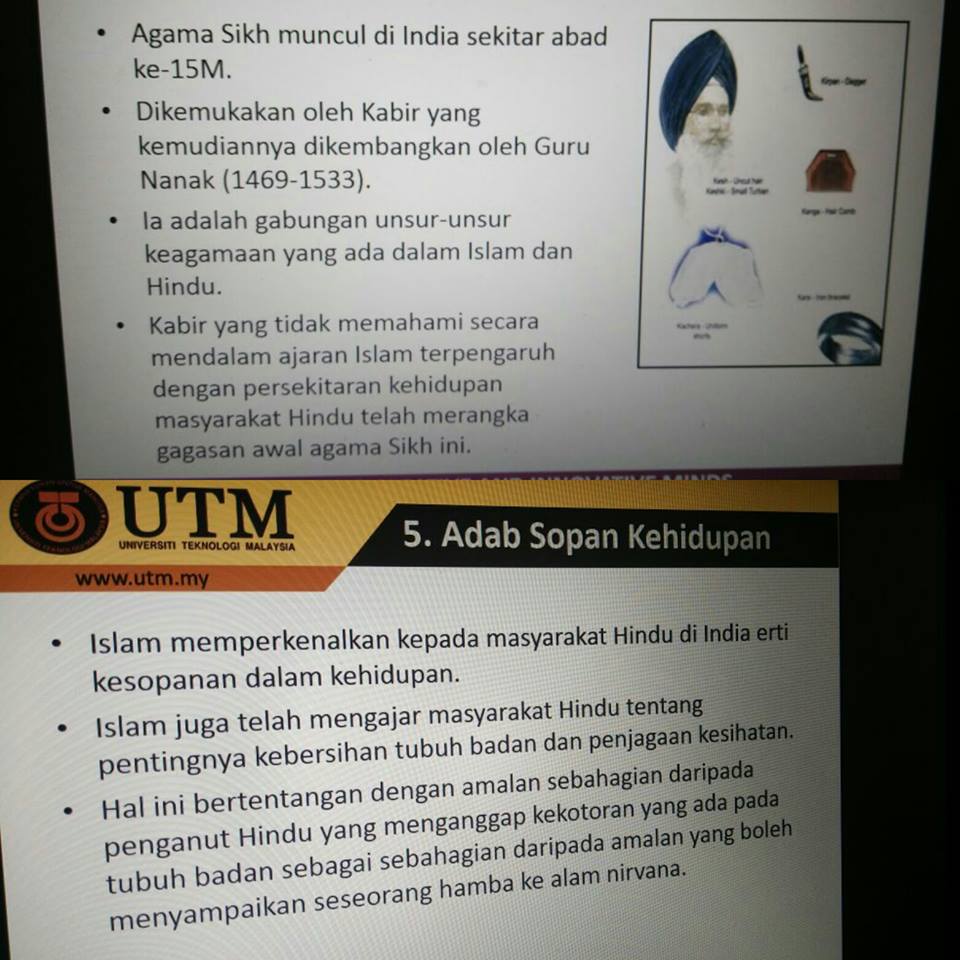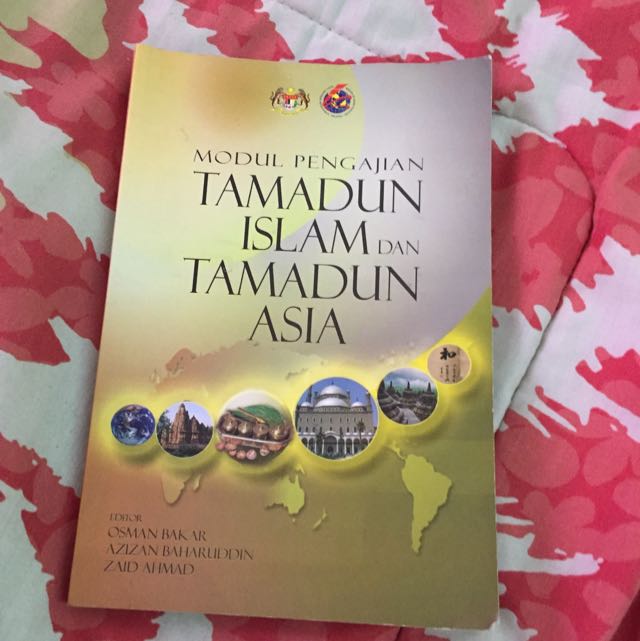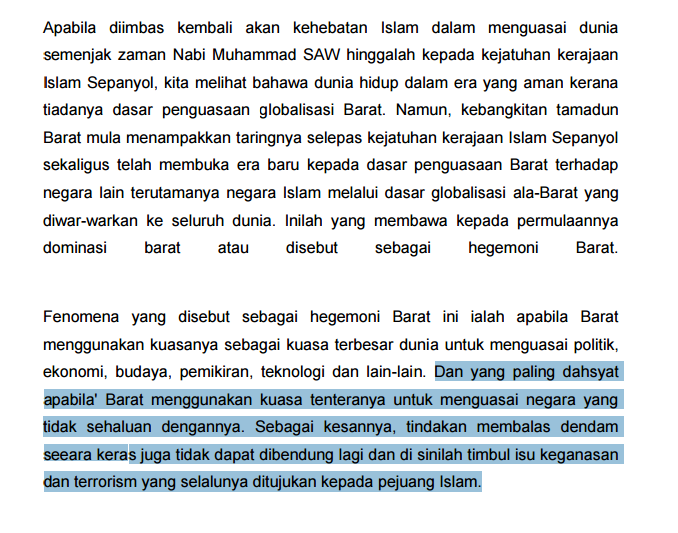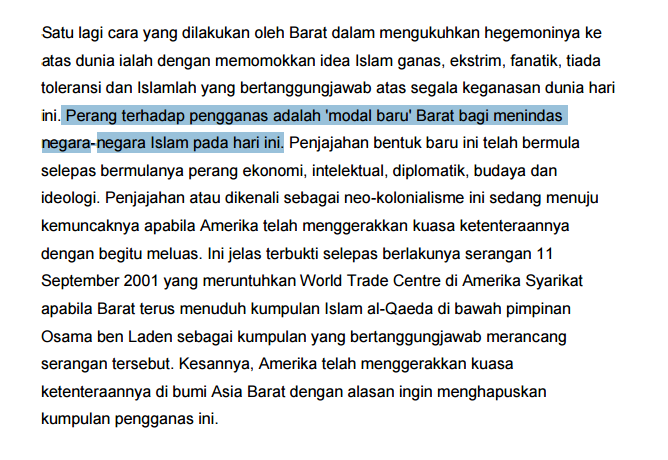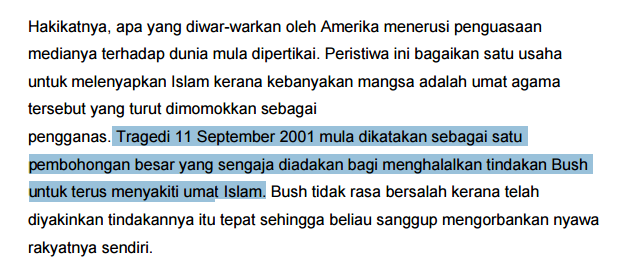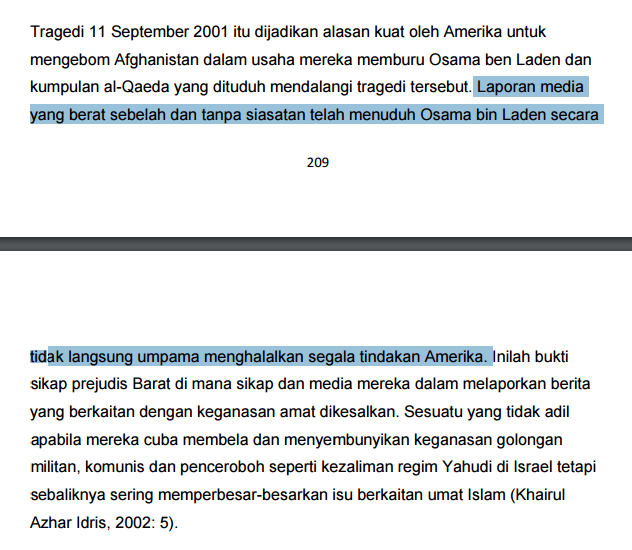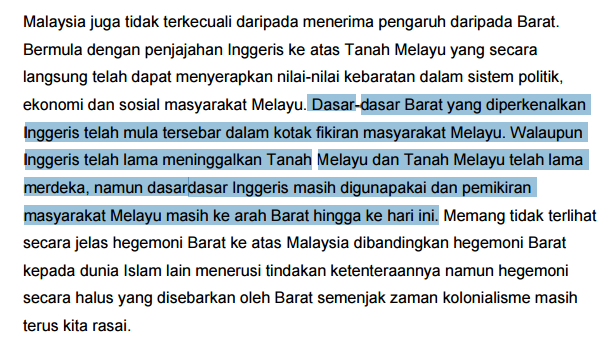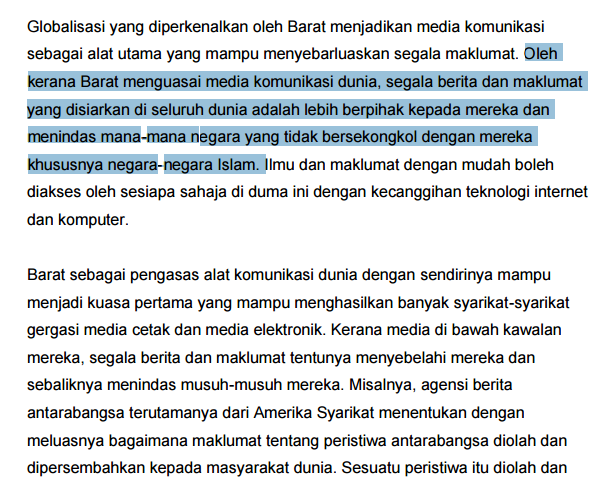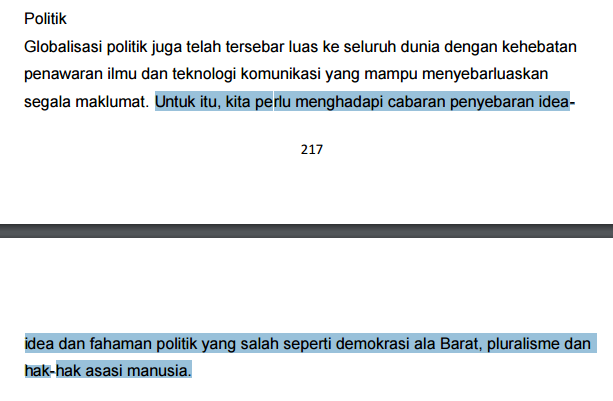7 Controversial Statements Found In The Tamadun Islam Dan Tamadun Asia (TITAS) Book
Facts or opinions?
On 14 June, news of a local university teaching its students that the Hindu community "preferred to be dirty" got locals riled up about the Islamic and Asian Civilisation Studies (TITAS) subject
It was reportedly taught by a lecturer at Universiti Teknologi Malaysia (UTM). The issue was brought up to the attention of the institution's vice-chancellor that assured the matter will be rectified.
Less than a month later, on 28 July, a lecturer at the Multimedia University (MMU) reportedly taught his students that Osama bin Laden doesn't exist and that 9/11 is a mere conspiracy.
These were taught during the Islamic and Asian Civilisation Studies (TITAS) class that was made a compulsory component for all Malaysia students pursuing tertiary education in local institutions.
What's really in the TITAS book? Were its contents misinterpreted by lecturers?
The TITAS module talks about the origins and development of both the Islamic and major Asian civilisations. It was introduced to teach tertiary education students about the history and culture of all these civilisations that greatly impacted the world.
The authors of the book are Osman Bakar, Azizan Baharuddin, and Zaid Ahmad.
It became a major subject of controversy when the then Deputy Prime Minister Tan Sri Muhyiddin Yassin introduced and made it part of the syllabus.
Many argued that that the students risk being taught by religious fanatics and it might be a step further towards the Islamisation of the country but Muhyiddin refuted it by saying that it was just to streamline the requirements between public and private tertiary institutions.
We found a digital copy of the TITAS book and came across some questionable statements such as these 7 below:
We used a digital copy of the Modul Pengajian Tamadun Islam dan Tamadun Asia as a reference, as the book was out of stock in most local bookstores.
The 273 pages PDF version of the book was uploaded on Uploady, an online file hosting service.
1. "Apabila diimbas kembali akan kehebatan Islam dalam menguasai dunia semenjak zaman Nabi Muhammad SAW hinggalah kepada kejatuhan kerajaan Islam Sepanyol, kita melihat bahawa dunia hidup dalam era yang aman kerana tiadanya dasar penguasaan globalisasi Barat."
Translation of the statement: The paragraph reads that Western superpowers have used their military powers to control countries that disagree with their principles and ideas. According to the TITAS module, this has lead to the widespread acts of violence and terrorism associated with the Islamic community.
Under Unit 12: Isu-Isu Kontemporeri Tamadun Islam Dan Tamadun Barat- Hegemoni Barat Dan Globalisasi, the introductory chapter of this syllabus talks about the development of science and technology that has greatly affected the world's civilisations.
While agreeing that those developments have positively impacted the world, the book also mentions that the western world's domination of globalisation has managed to penetrate into other parts of the world with their western ideas of economy, culture, thought-process and technology.
2. "Perang terhadap pengganas adalah 'modal baru' Barat bagi menindas negara-negara Islam pada hari ini."
Translation of the statement: "This is clearly proven after the 9/11 attack that brought down the World Trade Center in the U.S. when the West was quick to blame the Islamic militant group, Al-Qaeda, led by Osama bin Laden for the incident."
Moving further into the topic of western influence under the chapter, 'Gerakan Hegemoni Barat' (The Western Hegemony Movement), TITAS states that the wars against terrorists is just a new form of Western model to suppress Islamic countries. Referring to America in particular, the module adds that they launched multiple 'wars' against other countries, especially Islamic ones, in their efforts to "conquer" the world. Hegemony is defined as the political, economic, or military predominance or control of one state over others.
The ghastly 9/11 attacks killed 2,996 people including 11 unborn babies, and injured 6,000 others. Following the attack, Osama was quick to disassociate himself from the act, by releasing a statement that was broadcasted on Al-Jazeera, stating that, "I stress that I have not carried out this act, which appears to have been carried out by individuals with their own motivation."
However, in 2004, Osama released a taped statement acknowledging Al-Qaeda's involvement and his direct links to the 9/11 attacks.
3. "Tragedi 11 September 2001 mula dikatakan sebagai satu pembohongan besar yang sengaja diadakan bagi menghalalkan tindakan Bush untuk terus menyakiti umat Islam."
Translation of the statement: "The September 11 attacks that happened in 2001 were said to be just a major lie that was deliberately spread to legitimise Bush's (former U.S. president from 2001-2009) actions to continue hurting to Islamic community."
9/11 attacks also saw the formation of many conspiracy theories surrounding the incident, rejecting the facts presenting by the U.S. government. One of it being that key individuals within the government planned the attacks or may have collaborated with the Al-Qaeda to carry out the attacks.
However, the book does not denote on whether the statement was a theory or a proven fact.
4. "Laporan media yang berat sebelah dan tanpa siasatan telah menuduh Osama bin Laden secara tidak langsung umpana menghalalkan segala tindakan Amerika."
Translation of the statement: "The biased media reports that are based on little investigation have indirectly condoned everything that America has done."
The chapter spills into talking extensively about the 9/11 tragedy. According to the TITAS syllabus, the unfair media reporting speaks all about the Islamic terrorism activities but fails to cover the atrocities of the Jewish regime in Israel.
5. "Dasar-dasar Barat yang diperkenalkan Inggeris telah mula tersebar dalam kotak fikiran masyarakat Melayu.
Walaupun Inggeris telah lama meninggalkan Tanah Melayu dan Tanah Melayu telah lama merdeka, namun dasar-dasar Inggeris masih digunapakai dan pemikiran masyarakat Melayu masih ke arah Barat hingga ke hari ini."
Translation of the statement: "The western policies that were introduced by the English have penetrated into the minds of the Malay community. Despite the fact that the English have left Tanah Melayu and that we have already gained our independence, the policies left behind by the English are still used and is ingrained in the minds of the Malay community."
Also, note the usage of the word Tanah Melayu which has not been used since the country officially became Malaysia in 1963.
6. "Oleh kerana Barat menguasai media komunikasi dunia, segala berita dan maklumat yang disiarkan di seluruh dunia adalah lebih berpihak kepada mereka dan menindas mana-mana negara yang tidak bersekongkol dengan mereka khususnya negara-negara Islam."
Translation of the statement: "As the West holds the power over the communication media industry, all the news and information spread across the world is in favour of them and paints a negative picture of countries that refuse to "cooperate" with them, especially the Islamic countries."
While talking about the effects of globalisation on Malaysian culture, economy and politics, the module also talks about the control and power the West have on the media and the kind of reports it churns out.
Instead of presenting facts, TITAS says that most of the western media goes out of its way to present Islamic countries in a bad manner.
7. "...Untuk itu, kita perlu menghadapi cabaran penyebaran idea-idea dan fahaman politik yang salah seperti demokrasi ala Barat, pluralisme dan hak-hak asasi manusia."
Translation of the statement: The statement basically asks people to not fall for wrong western ideas, including democracy, pluralism and human rights.
All things considered, the TITAS module does provide information on Asian and Islamic civilisation, but these statements, like many others are opinions, although they are not classified as such in the book
While these statements may even provide the students with a different point on view on these topics, some have argued that it may mislead the students into thinking that they are facts as opposed to the opinions they really are.
Meanwhile, Deputy Education Minister P. Kamalanathan expressed his utmost disappointment over the inaccurate information in the TITAS module about Sikhism and Hinduism.
"I can't help but feel only someone who willfully and purposefully filled with ill intent would produce such a document," read a Facebook post on P. Kamalanathan's Facebook page on 14 June about the issue.
However, he stressed that UTM's vice-chancellor has assured that changes will be made immediately to the module, referring to the part in the book that mentions Hindus "preferred to be dirty".
Do you think this book should remain as a compulsory read for local students? Vote on our poll below and tell us what you think in the comments section below!
